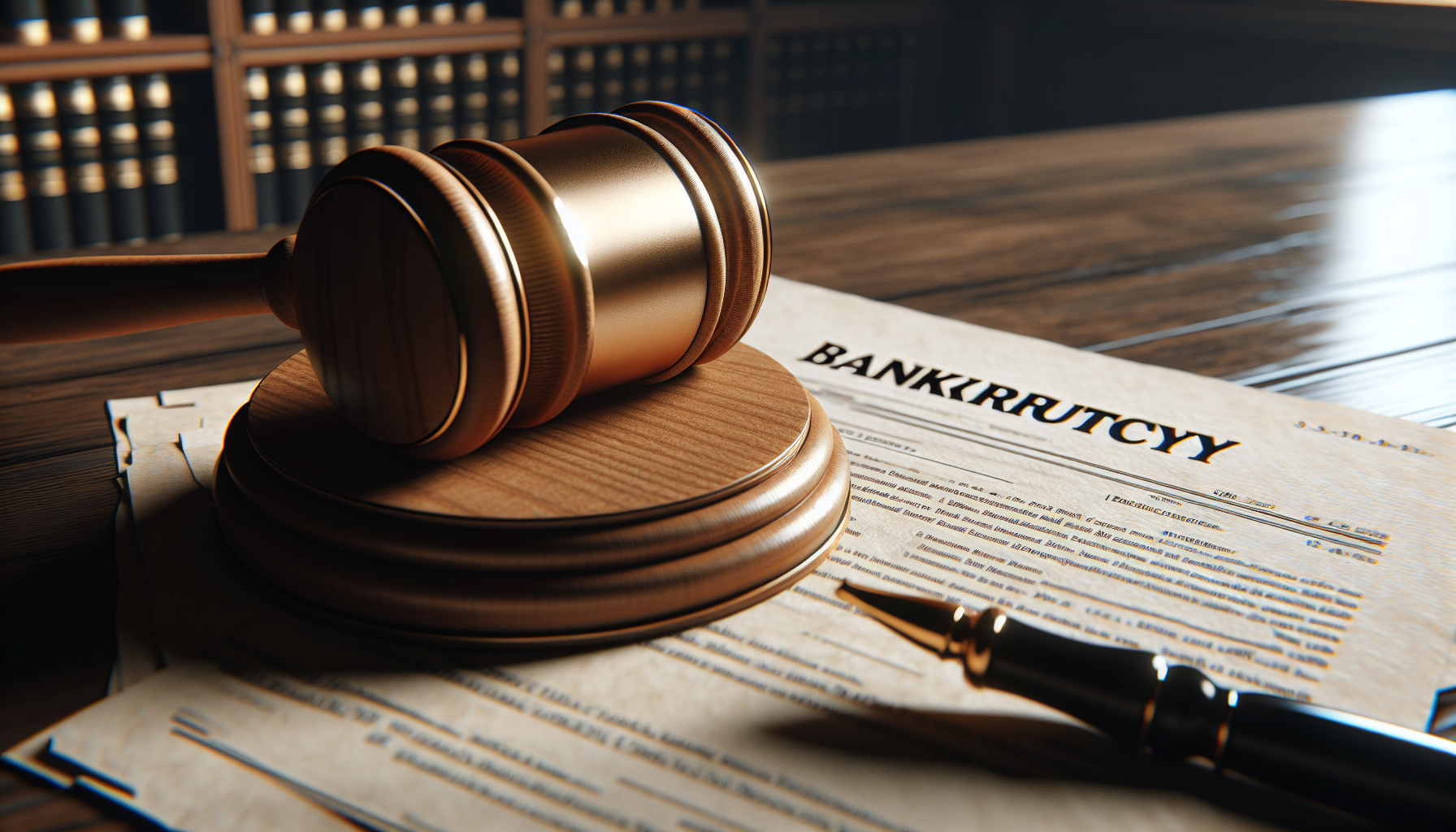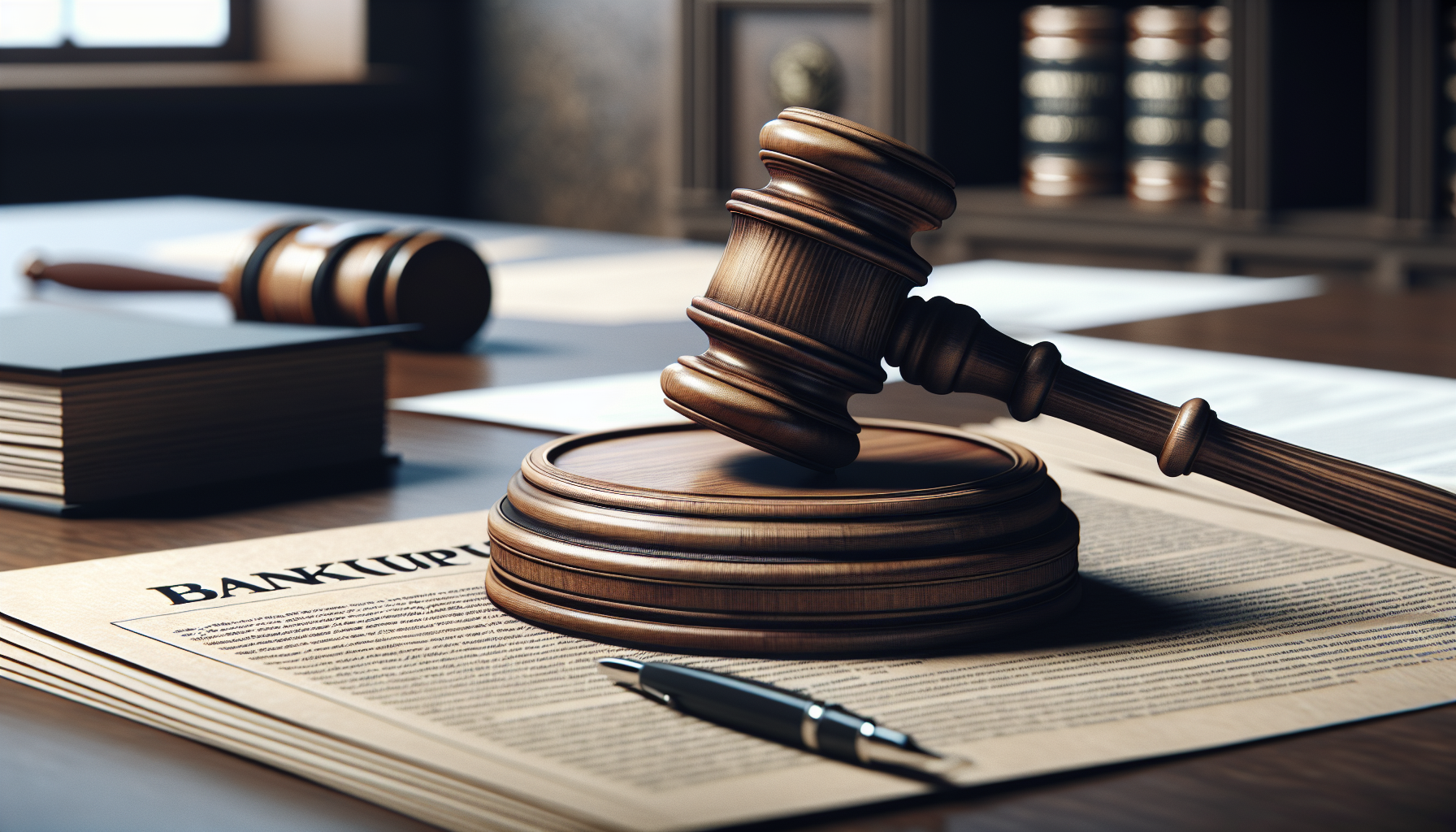
Bankruptcy court decisions hold a crucial position in molding insolvency law and honing the practice. These insolvency rulings not only simplify complex legal stipulations but also steer subsequent court judgments.
Bankruptcy judge orders are instrumental in setting standards that reshape the domain of insolvency law.
Tracing back to historical insolvency cases, there has been substantial evolution in court rulings.
These transitions, though slow, have brought about notable changes, some exerting a deep influence on the insolvency sector. Bankruptcy judge orders, even those related to individual cases, frequently trigger systemic changes, charting the direction for future procedures.
Interpreting the dense network of Chapter judgments, however, necessitates a thorough examination. By delving into the nuances of pivotal bankruptcy court, one can comprehensively understand insolvency rulings, bankruptcy judge orders, chapter judgments, and financial failure verdicts.
Understanding Insolvency Rulings: A Deep Dive
Insolvency rulings, intricately woven into our financial fabric, trace their origins to ancient times. These rulings, historically centered on punishing debtors outright, are now primarily concerned with fair Debt discharge rulings.
This paradigm shift in Bankruptcy law decisions provides essential support to businesses and individuals facing severe financial distress.
When examining an insolvency case, judicial courts use a variety of factors to determine the current state of financial instability.
These Chapter determinations vary: from reorganizing business operations to compelling complete liquidation, each decision carries different implications. Over time, the interpretation and enforcement of insolvency laws have evolved, mirroring various societal and economic transitions.
Insolvency is not necessarily the termination of an entity’s financial journey. Rather, it marks the beginning of a meticulously designed legal process involving liquidation outcomes, bankruptcy law decisions, debt discharge rulings, and chapter determinations.

The Impact of Bankruptcy Judge Orders
Bankruptcy Court, a specialized federal court, manages legal insolvency conclusions within cases addressing insolvency problems. These judgments have a significant effect on various parties, including the broader economy.
The court’s mission is to facilitate a fair solution, employing its power to deliver court-ordered liquidations in insolvency cases.
Incorporating laws and regulations, these liquidations are frequent in corporate bankruptcies.
A look at recent bankruptcy proceedings provides an insight into the interpretation of these laws in delivering financial ruin decisions. Noteworthy recent resolutions, like the Lehman Brothers case, shed light on the court’s evolving point of view.
The court not only delivers a verdict but often sets a precedent in the process. It shapes the future direction of similar cases and assists in establishing the context for subsequent interpretations of bankruptcy rulings. The ramifications of these bankrupt status rulings extend far beyond the immediate financial ruin, influencing legal insolvency conclusions, provoking court-ordered liquidations, and impacting other major financial decisions.
| Bankruptcy Court Function | Impact of Rulings |
|---|---|
| Manages legal insolvency conclusions | Significantly affects various parties and the broader economy |
| Delivers court-ordered liquidations in insolvency cases | Influences legal insolvency conclusions and provokes further liquidations |
| Sets precedent in bankruptcy cases | Shapes future direction of similar cases and interpretations of bankruptcy rulings |
Navigating Through Chapter 7 Judgments
Embarking on the path of navigating through chapter judgments is a pivotal step for individuals grappling with bankruptcy. The court is instrumental in comprehending insolvency, focusing primarily on evaluating the financial distress outcomes.
This analysis aids in decision-making and charting out the debtor’s monetary future.
In bankruptcy cases, deciphering the maze of complex legal terms frequently proves challenging for the debtor.
It’s indeed crucial to understand common legal conclusions, such as debt relief judgments in insolvency proceedings. These implications on the debtor may be diverse, extending from the resolution of debts to judgments regarding creditors claim verdicts.
The debtor’s reaction to a court’s decision demands thoughtful assessment, chiefly involving the administration of the court-ordained repayment plan. Often, this magnifies the debtor’s emotional stress, making the process of comprehending chapter findings quite intimidating. Nonetheless, these findings are critical components of the post-debt relief judgments, creditors claim verdicts, financial distress outcomes, and chapter findings analysis.
Decoding Financial Failure Verdicts
Unraveling the mysteries of legal verdicts related to financial failures provides an invaluable insight into bankruptcy litigation decisions. These decisions not only set the course for companies but also shape individual financial panoramas.
A solid grasp of the legal framework is vital for understanding debt repayment plan results.
These results enlighten stakeholders, enabling them to make judicious decisions.
Perhaps the most pivotal role in this process is that of the court in insolvency cases. Having a deep understanding of this legal structure can assist in untangling the often-complex nature of verdicts.
This understanding becomes crucial when evaluating chapter reorganization rulings. Such rulings often serve as a cornerstone for businesses, especially during financially uncertain times.
The comprehension of liquidation legal conclusions is not just for the faint-hearted.
It could play crucial roles in helping businesses prepare for potential outcomes. More so, they can guide businesses in understanding and navigating through debt repayment plan results, liquidation legal conclusions, bankruptcy litigation decisions, and chapter reorganization rulings.
Legal Verdicts in Financial Failures
- Understanding legal verdicts related to financial failures can provide valuable insights into bankruptcy litigation decisions.
- The court plays a pivotal role in insolvency cases, and understanding its structure can help in interpreting complex verdicts.
- Chapter reorganization rulings often serve as a cornerstone for businesses, particularly during financially uncertain times.
- Comprehension of liquidation legal conclusions can help businesses prepare for potential outcomes and navigate through debt repayment plan results.
A Closer Look at Liquidation Outcomes
Liquidation outcomes precisely determine the destiny of corporations grappling with corporate insolvency orders. Being instrumental elements, these legal debt relief decisions can dramatically revamp the circumstances.
In the global arena, interpretations of bankruptcy court verdicts differ, each jurisdiction setting its parameters.
The impact of these interpretations significantly shapes bankruptcy claims results.
Hence, in-depth analysis of case studies elucidates the application and consequences of such laws.
The court rulings play an integral role in molding the liquidation outcomes, influencing creditors, debtors, and stakeholders.
Various factors steer these debt elimination verdicts, generating a challenging labyrinth for stakeholders to navigate. This intricacy often instigates appeals against the judgments.
Understanding the implications of legal rulings on bankruptcy is essential to effectively navigate their impacts on stakeholders.
Utilizing appropriate strategies can lead to successful reversals of court rulings. Detailed examination of legal rulings in cases of corporate insolvency orders, legal debt relief decisions, bankruptcy claims results, and debt elimination verdicts is crucial for understanding the complexities of corporate law.
How Bankruptcy Law Decisions Shape Finances
Financial collapse rulings and Bankruptcy code interpretations considerably affect both individual and corporate finances. Leading to significant impacts on assets, credit scores, and prospective borrowing capacity, these decisions can drastically alter a person’s financial trajectory.
Knowing how these insolvency laws operate is critical for understanding financial health and coping with insolvency.
Therefore, it’s vital to understand how insolvency rulings can influence one’s economic standing.
Insolvent estate conclusions resulting from court judgments can cause a significant decrease in credit scores. This in turn can create obstacles for future borrowing – a crucial consideration for anyone trying to rebuild after a financial crisis.
Similarly, corporate financial health is significantly influenced by bankruptcy laws. Companies must be aware of the far-reaching consequences of court rulings related to insolvency. These judgments can lead to alterations in a company’s assets, impact credit ratings, and affect investor trust, reshaping the financial landscape and potentially driving entities towards situations such as financial collapse rulings, bankruptcy code interpretations, insolvent estate conclusions, and court-ordered debt reorganization.
| Individual Financial Impact | Corporate Financial Impact |
|---|---|
| Significant decrease in credit scores | Alterations in a company’s assets |
| Obstacles for future borrowing | Impact on credit ratings |
| Change in financial trajectory | Affect on investor trust |
Debt Discharge Rulings: What You Need to Know
To navigate financial distress, one must comprehend the concept of debt discharge. This aspect is central in situations of insolvency, with bankruptcy proceedings outcomes conventionally determining the debtor’s obligation destiny.
In this context, Chapter findings play a pivotal role, essentially molding the interaction between the legal framework and debt discharge.
The court’s judgments on matters such as eligibility for bankruptcy or the feasibility of debt management orders can significantly impact the rights and obligations of the indebted party.
Legal verdicts hold an extensive influence, with landmark cases often reshaping the rules surrounding debt discharge.
This effect trickles down to reshape norms and steer credit counselling rulings.
Court rulings can drastically affect both individual debtors and businesses contemplating bankruptcy, causing significant shifts in their financial landscape. The legal environment for debt discharge is dynamic, continually evolving due to recent trends and potential future modifications. It is vital for both individuals to comprehend the chapter findings, understand the outcomes of bankruptcy proceedings, adhere to debt management orders, and follow credit counselling rulings.
Unpacking Chapter 7 Determinations: A Comprehensive Guide
The sentence: The mechanisms governing chapter determinations significantly influence insolvency proceedings results, shaping the outcomes of bankruptcy cases is complete. Courts hold a pivotal role, specifically in bankruptcy instances, wherein they decide the applicable type of bankruptcy – Chapter 7 concerning assets liquidation outcomes, Chapter 11 commonly employed by businesses, or Chapter 13 focused on debt consolidation findings.
Decoding court rulings is a critical element in comprehending the depth of bankruptcy legal principles.
The terminology used in these decisions often features intricate legalese, but an enhanced familiarity with this language can bolster understanding.
The importance of thorough examination and comprehension of significant court determinations cannot be understated. These highlight the bankruptcy legal principles applied and the wider repercussions for subsequent insolvency proceedings results.
The decisions courts make leave a substantial impact on all stakeholders – debtors, creditors, and legal professionals, altering their approach towards bankruptcy cases. Finalizing our assets liquidation outcomes, insolvency proceedings results, debt consolidation findings, and bankruptcy legal principles is a critical step towards financial restructuring.
| Bankruptcy Types | Key Features |
|---|---|
| Chapter 7 | Concerns liquidation of assets |
| Chapter 11 | Commonly employed by businesses |
| Chapter 13 | Focused on debt consolidation |

Get a Free Bankruptcy Case Evaluation